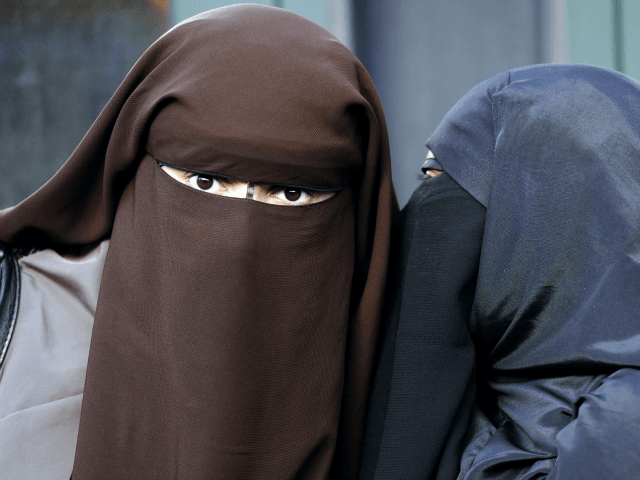Invisible women not allowed in Bulgaria

MIGUEL MEDINA/AFP/Getty Images
by DONNA RACHEL EDMUNDS
The Bulgarian Parliament has overwhelmingly given the green light to a proposed ban on the wearing of burqas in the country, with only eight Members of Parliament voting against it.
The bill’s approval means that Bulgaria is on track to becoming the third European country, after France and the Netherlands, to ban clothing that covers the face in public places. Women who defy the ban will be fined 200 leva (£80) for the first offence, increasing to 1,500 leva and the cancelling of social benefits for subsequent offences, the Sofia Globe has reported.
In addition, those who persuade others to wear the veil will be fined 5,000 leva and face up to three years in prison, while for those who persuade minors to wear the veil the penalties are increased to 10,000 leva and a maximum of five years’ jail time.
The bill was tabled by the Patriotic Front (PF), who have already been instrumental in getting local bans put in place. The text makes it clear that the bill is aimed at “the aggressive enforcement of limits to personal freedom and human dignity of the women,” particularly in communities where “radical Islam exists,” reports Balkan Insight.
It was supported by the majority of the National Assembly’s 240 members, while the eight votes against came from Parliamentarians representing the Movement for Rights and Freedoms (MRF), and Turkish-rights party DOST. There were no abstentions.
The majority was not unexpected, however, as the bill was widely supported during the committee stages, with only the MRF putting up any meaningful opposition.
During the debate Lyutvi Mestan, the leader of DOST and former chair of the MRF called the bill “comic and pathetic”. MRF member Tuncher Kardjaliev, said the draft law addressed an artificial problem and slammed it as “pure populism”. And his MRF colleague Hamid Hamid said there was no need for a ban as the garment is only worn by a small number of Roma Salafists in the city of Pazardjik.
But Julian Angelov from the PF hit back: “The fact that we have 20 or 100 women with burqas does not mean that we should wait for them to become 150,000.”
The ban will cover Bulgarian citizens, migrants, and temporary residents, and applies to all public areas including parks, public and private transport, schools and gardens, but will not apply to private homes or places of worship. Exceptions may be made for medical or professional reasons, and during sporting and cultural events.
Muslims account for about 12 per cent of Bulgaria’s population, and mostly belong to a centuries old population made up mostly of ethnic Turks, among which the wearing of the veil is not common. But the garment has gained popularity with Roma Salafists living mostly in the central city of Pazardjik.
The city already has a regional ban, put in place in April to diffuse tension between communities and to boost security following the terrorist attacks on Paris and Brussels.
“I am tired to hear that Pazardjik is the town of the burqas. We want to say aloud that we are not that, but a town of responsible people and we will be associated with other achievements,” Mayor Todor Popov told national radio at the time, according to the Telegraph.
No comments:
Post a Comment